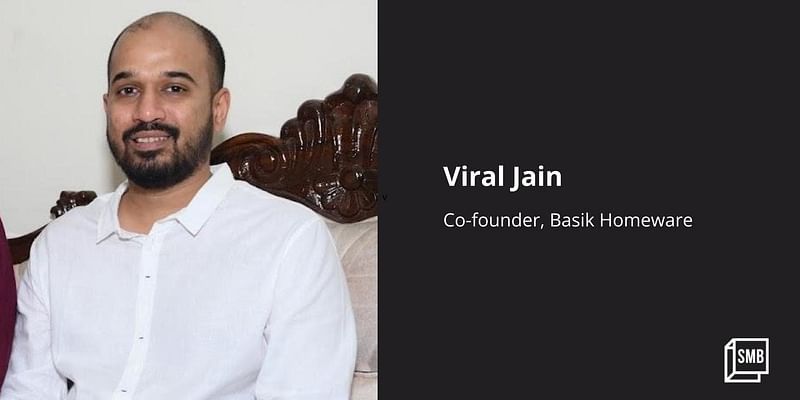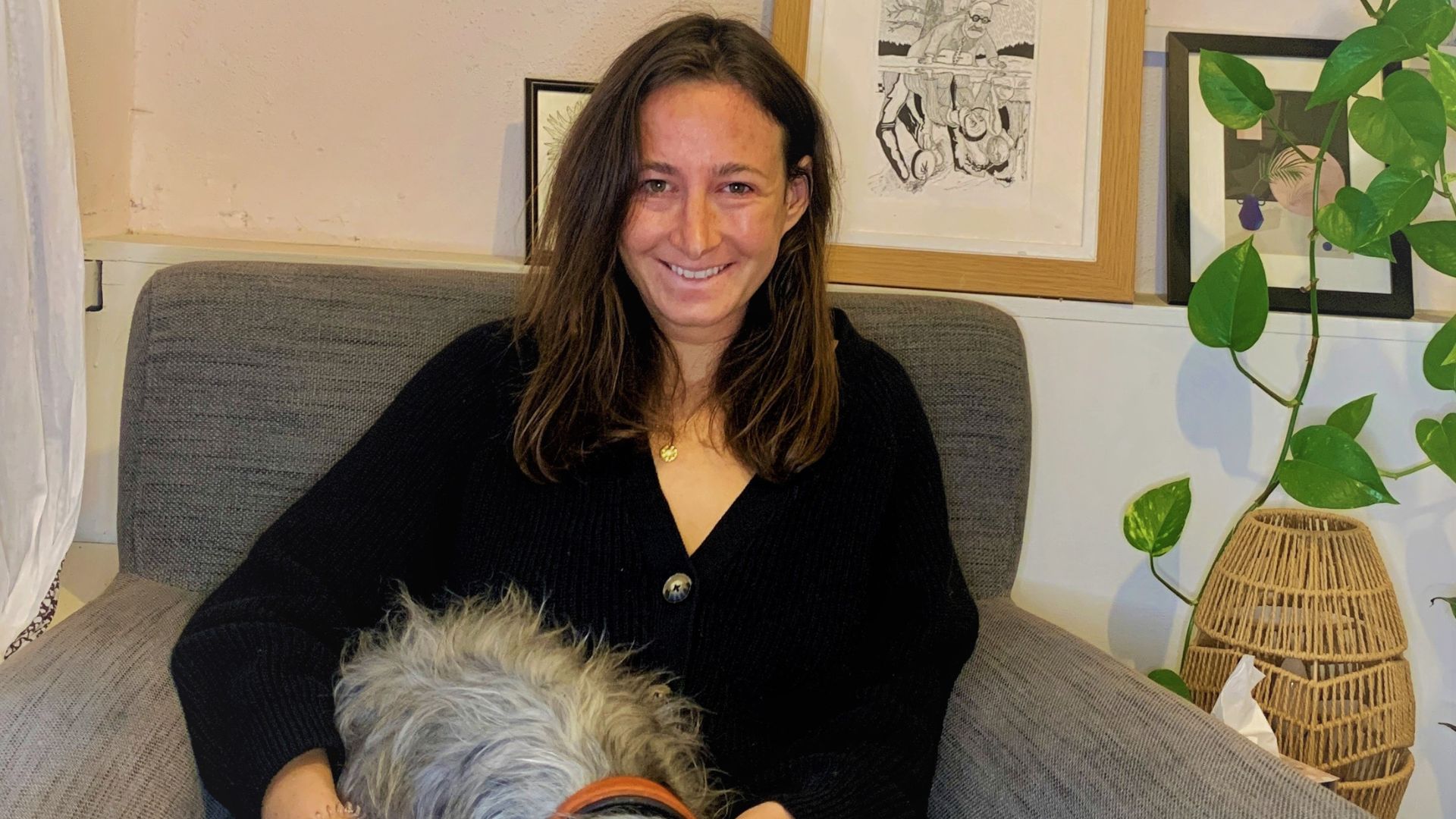Stainless-steel could also be sturdy and ecofriendly, however stainless-steel bins and containers are sometimes thought of boring and boring. Basik Homeware desires to vary that notion with a line of stainless-steel merchandise which are purposeful, secure, fashionable and pocket-friendly.
Mumbai-based Basik Homeware was based in 2016 by siblings Vidhi Jain, a former dressmaker, and Viral Jain, who has labored in his household homeware enterprise. The siblings, who had grown up round homeware, realised that it was solely becoming to begin a enterprise of their very own in the identical trade.
Based on Vidhi, Indian shoppers need merchandise which are vibrant, refreshing by way of design, and in addition reasonably priced. And that is what Basik Homeware desires to offer shoppers.
The homegrown model provides a variety of storage objects comparable to vacuum flasks, tiffin bins, water jugs, casseroles, and low mugs in a variety of colors and designs, priced between Rs 100 and Rs 1000.
Basik Homeware goals to make stainless-steel merchandise reasonably priced to individuals of varied revenue teams. “Stainless-steel is mostly costly because of the increased value of manufacturing. Basik Homeware merchandise are about 25% cheaper in comparison with different manufacturers available in the market. We’ve eradicated the price of importing uncooked supplies,” says Viral.
“Many stainless-steel merchandise get imported from China; prospects pay the next value for good high quality. This results in sure financial courses being denied the possibility to personal good high quality homeware. We need to give individuals the identical high quality at a greater value,” says Vidhi.
Apart from providing an reasonably priced and trendy vary of merchandise, the corporate additionally desires to offer shoppers an ecofriendly different to plastic, which appears to have pervaded the homeware market. Whereas its merchandise are primarily constituted of stainless-steel, some components are constituted of BPA-free plastic.
The way it started
The duo constructed the model with a mortgage of Rs 2 crore; additionally they availed themselves of further monetary help from authorities schemes comparable to ‘Atmanirbhar Bharat’.
Initially, Vidhi and Viral confronted challenges in executing their plan, hiring a technically expert workforce, organising high quality infrastructure, and managing the operations to maintain the enterprise. The following hurdle was the pandemic.
“Throughout the pandemic, gross sales dipped and manufacturing staggered as a result of a majority of the workforce wasn’t out there. Since we’re depending on distributors and suppliers for uncooked materials, the working capital circulation chain halted resulting from a monetary crunch. After conceptualising and ready for issues to settle, we determined to rethink our distribution and provider channels,” elaborates Viral.
Manufacturing and provide
Basik Homeware has a producing unit within the industrial hub of Vapi in Gujarat.
Staff for the manufacturing unit had been employed as apprentices from close by areas and skilled to deal with state-of-the-art equipment underneath the federal government’s Ability India marketing campaign. Later they had been employed full-time.
On the availability aspect, the corporate has tie-ups with large manufacturers comparable to Jindal and Salem Metal for sourcing stainless-steel. The metal is recyclable, anti-bacterial and sustainable, in response to the corporate. “We need to work with a uncooked materials that’s sturdy, long-lasting and provided by dependable distributors,” says Viral.
The corporate is eager to supply all the pieces inhouse and scale back the nation’s dependency on imported merchandise. Viral says, “Throughout the pandemic, the import sector was in hassle with respect to logistics. It was a giant trouble to convey uncooked supplies from overseas. So, we determined to fabricate merchandise in-house to make issues extra handy. It additionally aligned with our values of being extra self-reliant.”
(L) Basik Homeware’s manufacturing unit in Vapi, Gujarat; (R) The model’s stainless-steel merchandise
Progressive design
The model experiments with designs and colors to offer its merchandise a up to date contact and a beautiful look. It collaborates with impartial artists and graphic designers for a similar.
Basik Homeware’s Gold Leaf assortment options merchandise with a black-and-gold mixture and a matte end, whereas its Junglee Summer season assortment targets school-going youngsters, with contemporary and vibrant colors and cartoon characters. The packaging accommodates video games and puzzles to draw youngsters. There’s one other assortment within the pipeline focused at younger city prospects.
The corporate makes use of processes comparable to spray portray, energy coating, display printing, and sizzling stamp submitting for color and texture. The dyes used within the paints are meals secure, says the corporate founder.
Basik Homeware’s vary of merchandise
Income mannequin
Basik Homeware generated a income of Rs 27 crore in FY2022, promoting 3 lakh items monthly. The corporate is aiming for Rs 60 crore in FY2023.
Basik Homeware’s merchandise are offered via stores comparable to D-Mart, Reliance, Walmart India, Way of life, Star Bazaar, and Metro Money and Carry throughout the nation. The corporate’s merchandise are additionally out there on-line by itself web site and on Flipkart and Amazon.
The corporate has additionally partnered with native distributors in Maharashtra, Gujarat and Rajasthan. It plans to unfold distribution to the markets of Delhi, Punjab, Uttar Pradesh, Tamil Nadu, Kerala, Telangana and Karnataka.
Other than retail prospects, the corporate additionally has B2B purchasers within the company gifting house. Basik Homeware has additionally partnered with manufacturers like Solar Pharma, Wagh Bakri Tea and Ambuja Cement to supply promotional giveaways.
Enlargement plan
Going ahead, the corporate is trying to ramp up its present manufacturing capability of 10,000 items per day, develop its workforce, and import new equipment. Additionally it is within the technique of buying a 10-acre land for organising one other manufacturing unit.
Basik Homeware plans to usher in buyers and go public in three to 4 years. Within the subsequent 5 years, the corporate desires to develop its presence within the Indian kitchenware market, which is price over $80 million.



